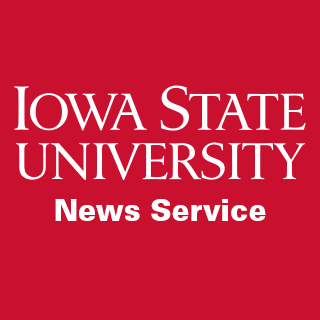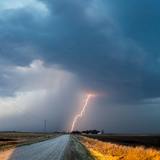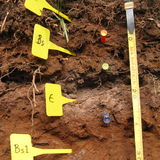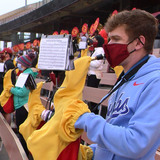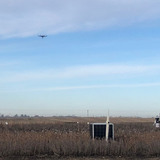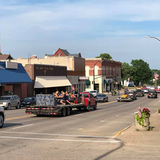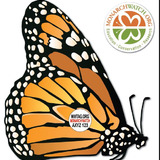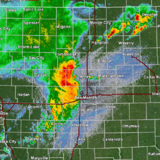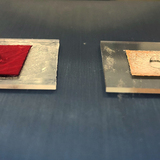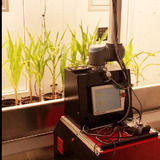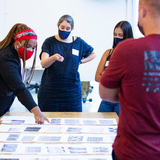News Archive
Monday, September 21 2020
-
COVID-19 weekly snapshot
The following information is a supplement to the university's COVID-19 Public Health Data weekly updates. It is intended to provide a brief snapshot of the data and trends identified by Iowa State's public health team.
-
Heavy rainfall drives a third of nitrogen runoff, according to new study
Extreme rain events that occur on nine days a year drive around a third of all nitrogen yields on farmland in the Mississippi River basin, according to a new study. The research could inform how and when farmers apply nitrogen fertilizer to their fields and has environmental implications for the hypoxic zone in the Gulf of Mexico.
-
Researchers to study effects of landlord decisions during pandemic
A rapid response grant from the National Science Foundation will allow an Iowa State University research team to study how landlord decision-making has contributed to rental housing instability during the COVID-19 pandemic.
-
Iowa State makes changes to spring academic calendar
As part of the ongoing response to the COVID-19 pandemic, Iowa State University’s spring 2021 semester will begin two weeks late and eliminate spring break. In a letter today to the campus community, President Wendy Wintersteen announced that spring classes will begin Jan. 25.
-
U.S. News rankings: Iowa State 54th among public universities
Iowa State University improved in the overall and public university 2021 rankings released Monday by U.S. News and World Report. Iowa State is tied for 54th among public universities and tied for 118th in the overall national rankings.
-
Digging into soil organic matter
A new study found patterns in how soil organic matter forms across a wide range of climate types. Understanding how soils break down or preserve organic matter is important because organic matter plays a central role in the kind of services soils can provide, such as whether they make good agricultural soils or if they can sequester carbon to slow climate change.
-
The beat goes on: Cyclone Marching Band adjusts to pandemic for football opener
Unlike years past, the Cyclone Marching Band will not take the field at Jack Trice on Saturday, Instead, the band will take over the stands on the east side of the stadium to allow for 7.5 feet – or 4 steps in marching band terms – between each band member. Pregame and halftime performances will be from the bleachers. The band has also implemented several other mitigation strategies.
-
President Wintersteen statement on Stephens Auditorium
President Wintersteen says the university and the athletics department are committed to working together to develop a plan for how Stephens Auditorium will operate into the future for the benefit of campus and the Ames community.
-
Connecting farmers to share agronomic data
A new project will help farmers harness innovative technology to pool data in an effort to improve production. The effort, recently funded by a federal grant, will start out as a small pilot project and gradually expand to hundreds of farmers.
-
Study of ‘shrink-smart’ towns expanding to include curriculum, big data
Iowa State's rural smart shrinkage project has received a three-year, $1.5 million grant from the National Science Foundation to build upon its pilot study examining whether there were towns in Iowa that have lost population but perception of quality of life has remained stable or improved.
-
Iowa State fall enrollment of 31,825 shows strong retention
Iowa State’s fall enrollment of 31,825 students includes a diverse and academically strong class of 5,071 first-year students with a record GPA of 3.71 and 17.2% U.S. multicultural students. The university's one-year retention rate also set a record this fall with 88.5% of first-year students returning for a second year.
-
New study on migration success reinforces need for monarch butterfly milkweed habitat
A recently published study presents evidence that the migration success of monarchs hasn’t declined in recent years and thus cannot explain the steep decline in the monarch population over the last few decades. The study drew on data collected on 1.4 million monarch butterflies that were tagged in the United States Midwest from 1998 to 2015 and emphasizes the need for new monarch habitat.
-
A derecho debrief: Not even a scientist/storm chaser expected the August 10 storm
Bill Gallus, an Iowa State storm expert (and chaser), was as surprised as anybody by the Aug. 10 derecho that blew across Iowa and the Midwest. He expects researchers will take a good look at why the violent, straight-line winds didn't show up in forecasts. And does a warmer climate mean more of these storms are coming? Gallus said it's hard to say for several reasons, including the fact there are too few of the storms to establish much of a trend line.
-
Iowa State to open new COVID-19 testing center
Iowa State University is expanding its COVID-19 testing, case management and contact tracing efforts to manage infection on campus. A new testing center will open in the next week in Johnny’s at Hilton Coliseum, and the university is more than doubling the number of contact tracers and case managers who notify and support ISU students, faculty and staff who test positive or were potentially exposed to a positive COVID-19 case.
-
Engineers use heat-free technology to make metallic replicas of a rose's surface texture
Iowa State's Martin Thuo and his research group have developed technology to make metallic replicas of soft, natural surfaces such as rose petals. The team's metallic surfaces retained properties of the originals, including a rose petal's sticky, yet water-repelling textures.
-
Plant scientists study the interaction of heat stress responses in corn
A new study shows how two responses in separate locations inside plant cells work in concert to help corn plants respond to heat stress. The research was made possible by the Enviratron, an innovative plant sciences facility at Iowa State University that utilizes a robotic rover and highly controlled growth chambers.
-
COVID-19 cases reported for first week of classes
Iowa State University will provide weekly updates on COVID-19 test results. The data will include testing conducted at Thielen Student Health Center (TSHC) for students, faculty and staff who were symptomatic or exposed to someone who tested positive, as well as test results from the athletic department.
-
Flexibility key as Iowa State begins fall semester during ongoing pandemic
As the fall semester at Iowa State University gets underway, faculty and graduate students discuss the new mix of face-to-face, hybrid and online courses in place due to the ongoing COVID-19 pandemic.
